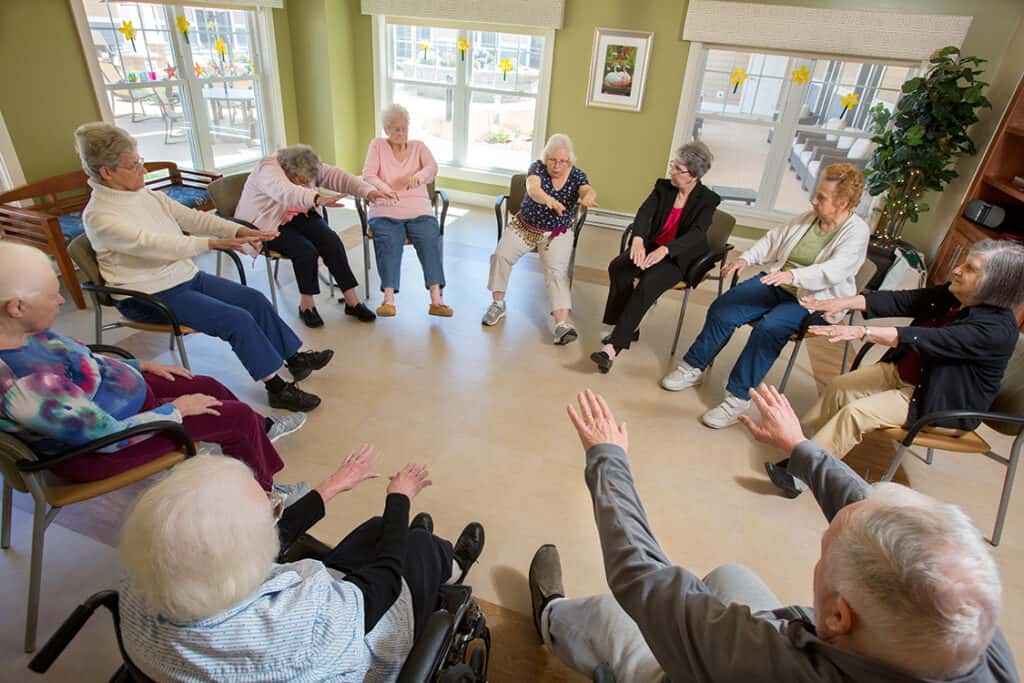Choose a trusted Memory Care community focused on dignity and respect.
Choose a trusted Memory Care community focused on dignity and respect.
Blog Article
The Duty of Assisted Staying In Giving Specialized Look After Dementia Patients
The provision of specialized treatment for mental deterioration individuals within assisted living centers is progressively recognized as an important element of reliable dementia monitoring. These atmospheres are created to resolve the special cognitive and psychological difficulties faced by people with dementia, offering tailored support that promotes security and well-being.
Understanding Mental Deterioration Treatment Demands
Comprehending the treatment demands of people with dementia is crucial for providing efficient support and boosting their top quality of life. Dementia is a dynamic neurological condition that affects cognitive functions such as memory, thinking, and communication. Consequently, individuals with mental deterioration commonly call for assistance with day-to-day activities, personalized care plans, and emotional support.
Effective mental deterioration treatment includes identifying the unique difficulties faced by each individual. This consists of understanding the stages of dementia, which can vary from mild cognitive disability to innovative phases requiring thorough aid. Care needs may incorporate support in taking care of day-to-day routines, drug adherence, and maintaining social communications to avoid isolation.
Furthermore, sensory excitement and familiar atmospheres can considerably improve the health of individuals with dementia. Caregivers must be trained to identify behavior modifications and employ techniques customized to each individual's preferences and previous experiences. Techniques such as validation treatment and reminiscence can aid connect efficiently and cultivate a complacency.
Eventually, effectively attending to the care needs of individuals with mental deterioration requires a thoughtful strategy, ongoing training for caretakers, and a dedication to preserving self-respect and regard throughout the caregiving process.
Advantages of Assisted Living

One more considerable benefit is the secure and secure environment these facilities supply. Locals profit from features such as secured entryways and checked typical areas, minimizing the threat of straying and improving general security. Assisted living promotes social communication amongst residents, fostering a feeling of area and belonging. Involving with peers can minimize feelings of isolation, which prevail in those coping with mental deterioration.
On top of that, many nursing home use help with daily tasks, such as medication management, bathing, and dish preparation. This support enables homeowners to keep their self-reliance while guaranteeing their health and well-being are prioritized. Inevitably, assisted living acts as a valuable resource, stabilizing care and autonomy for people with dementia and their households.

Specialized Programs and Tasks
(Charlotte Alzheimer's Care)Identifying the unique requirements of people with dementia, several assisted living centers carry out customized programs and activities developed to boost cognitive feature and advertise overall wellness. These programs usually include cognitive excitement activities that engage citizens in memory games, problems, and memory therapy, which motivates the sharing of individual stories and previous experiences.
In addition, art and music treatment play considerable duties in promoting creative thinking and psychological expression (Assisted Living). Involving locals in painting, crafting, or music sessions can supply restorative advantages, helping to minimize anxiety and enhance mood. Physical tasks, such as mild exercises and dance sessions, are also essential, as they advertise wheelchair and physical health while urging social communication amongst homeowners
Organized everyday routines are commonly developed to provide a sense of security and predictability for people with mental deterioration. These routines can consist of arranged dish times, group tasks, and personalized care strategies that cater to private rate of interests and capacities. By creating an improving setting loaded with customized activities, assisted living centers not only enhance the lifestyle for dementia individuals but likewise cultivate a feeling of area and belonging.
Trained Staff and Support
(Dementia Care Charlotte)In helped living facilities, the existence of experienced personnel is crucial for supplying efficient support to individuals with mental deterioration. These specialists possess specialized expertise and skills to address the special needs of residents, guaranteeing their security, comfort, and wellness. Personnel receive training in mental deterioration care, which consists of recognizing the development of the disease, recognizing behavioral modifications, and utilizing efficient communication approaches.
Moreover, qualified personnel are outfitted to carry out personalized treatment strategies customized to every local's Assisted Living Charlotte choices and abilities. This customized approach fosters a sense of autonomy and dignity, enabling locals to involve in purposeful activities that improve their lifestyle. The staff additionally play a vital role in keeping track of health and wellness and wellness, promptly determining any adjustments in problem that might need medical attention.
In enhancement to direct care, experienced team give psychological assistance to locals, helping to relieve sensations of complication and stress and anxiety that commonly come with dementia. Their thoughtful strategy produces a nurturing setting where residents feel valued and recognized - Memory Care. Ultimately, the know-how and dedication of experienced staff are essential in delivering thorough treatment that meets the complicated requirements of individuals living with dementia in assisted living setups
Household Involvement and Resources
Family involvement plays a significant function in the treatment of individuals with mental deterioration in assisted living centers. Involving family participants in the care process not only improves the psychological wellness of the citizen however likewise promotes a collaborative atmosphere where treatment strategies can be customized to individual needs. Family members can supply useful insights right into the choices, history, and habits of their liked ones, which can inform caretakers and bring about more personalized care approaches.
In addition, aided living facilities usually use sources for households, such as support system and educational workshops. These resources can assist families comprehend mental deterioration, enhance interaction techniques, and develop coping mechanisms. Involvement in these programs can encourage relative, furnishing them with the devices required to support their enjoyed ones efficiently.
Furthermore, regular interaction in between family members and team is essential. This ongoing discussion allows family members to stay informed regarding their loved one's progress and any type of modifications in treatment plans. Inevitably, a solid collaboration between families and assisted living centers promotes a setting of trust fund and understanding, ensuring that people with dementia get the specialized treatment they are worthy of while preserving their family links.
Final Thought
In conclusion, assisted living facilities play an important duty in resolving the unique demands of mental deterioration clients with customized care and assistance. Eventually, assisted living gives vital resources that considerably boost the high quality of life for those living with dementia.
Report this page